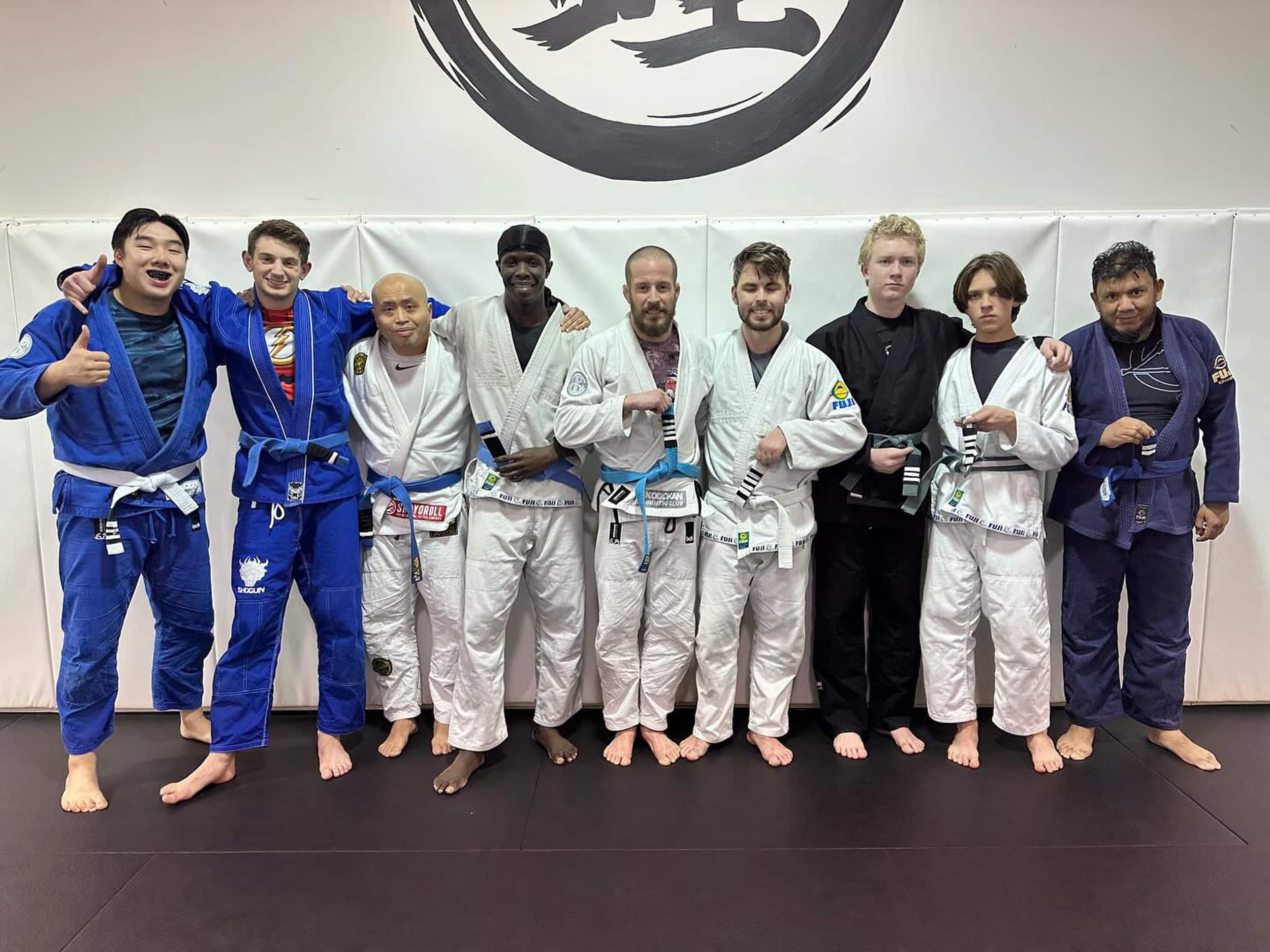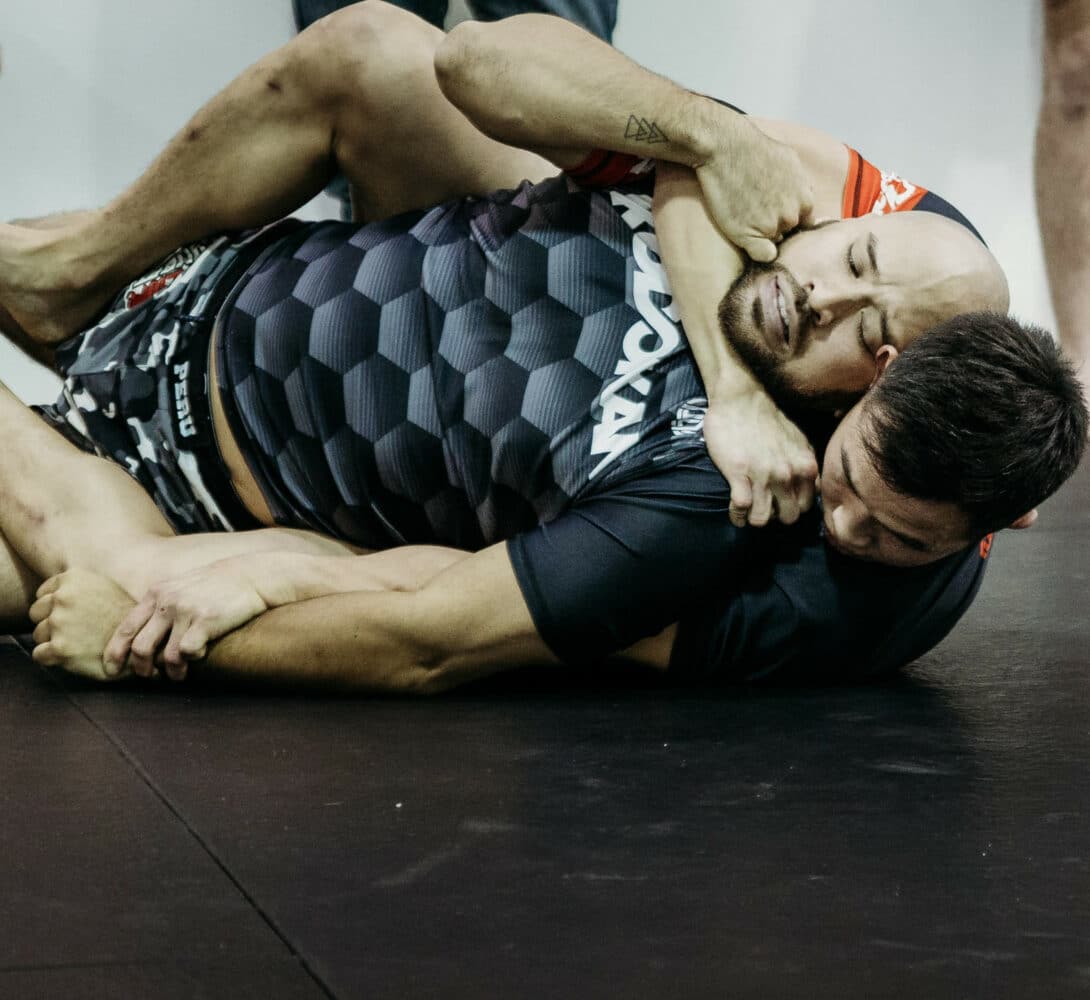Rising Phoenix
Rising Phoenix: How injuries help our Jiu-jitsu. As with any intense sport which is practiced regularly, injuries in Jiu-jitsu can and sometimes do occur.
There are ways to minimize the occurrence of injuries, and the human body is able to recover from almost any injury that occurs in training, but injuries are still often looked as a negative part of the sport. Injuries can be painful, take time and effort to heal, and also exact a psychological and emotional toll.
In Jiu-jitsu we are always looking at how to turn what seem like a negative into a positive.
Larger opponent is on top position? No problem, we can sweep or submit! With this mindset at the forefront, below are five positive ways in which being injured that can help us to improve as a Jiu-jitsu player and overall martial artist.
1. Injuries help us learn
Many injuries in Jiu-jitsu are avoidable and the result of an error we or your partner is doing that is repeated many times before it ends up in an injury. For example, it is possible that we are getting stacked on our neck too often, and that our coach has even told us many times to avoid this and even taught us some escapes. If we choose not to listen or put enough time and energy into correcting the problem we could eventually get an injury. Another example is us regularly not tapping out fast enough when caught in a submission.
We may be lucky to avoid an injury for some time. But eventually if we do not correct our Jiu-jitsu practice our luck will “run out” . And we will likely get injured while stubbornly trying to muscle out of an armbar or foot lock that is “locked in”.
Once our stubbornness has resulted in an injury. We realize that there were many warning signs along that way and many opportunities to correct our mistakes before we got hurt. Stubbornness definitely does not “pay”.
Injuries make us realize that “an ounce of prevention is worth a pound of cure”. And that it is much better to correct ourselves by listening to our coach’s advice. Or even the things we know we are not doing the right way before an injury happens.
Learning “the hard way” is not only painful but will force us to take time off from training to recover and thereby slow our progress in Jiu-jitsu.
2. Injuries toughen us up
In Jiu-jitsu we get used to being tired and sore because we train. Frequently, physically, and at high intensity. Paradoxically injuries can also help toughen us up.
Just as there are levels to Jiu-jitsu, which can be distinguished by the belt colors from white through to belt. There are also levels of pain that we have to endure as a consequence of becoming Jiu-jitsu fighters.
Some parts of Jiu-jitsu matches can be characterized as contests to see who can endure more pain. As when two fighters are both caught in similar submissions. And there is a contest to see who will submit the other first.
Technique and mindset are two things that can help us get out of these tricky situations. As well as not getting into them in the first place. But there is no question that in a combat sport, toughness also plays an important role.
A legitimate Jiu-jitsu black belt has likely dealt with at least some injuries. In varying severity on their way to becoming a high level fighter and martial artist. Being tired or sore after practice will not seem so bad once you have recovered from a truly painful injury.
Being tough also means learning how to avoid getting hurt.
Although it may be challenging to think this way when you are injured. Understanding that all black belts have gone through injuries and pain. On their way to reaching a high level of proficiency and toughness can help you stay positive during the recovery process.
3. Injuries allow us to heal
As counterintuitive as it may sound, injuries can actually allow us to take time off. To allow nagging and persisting injuries to recuperate. In Jiu-jitsu our bodies can take a fair amount of punishment. Especially if we are preparing for competition or are older. And some injuries build up with time to the point where we don’t really notice them and just get used to training through them.
Whether it is sore hands, toes, ribs, or a neck. We try not to take time off for training if the pain is not too bad. A more serious injury that sidelines us can actually allow us to come back fully recovered from other smaller injuries. That we might not have taken time to fix otherwise.
Sometimes a little bit of time off can be good for our Jiu-jitsu that way. There is also value in rehab and other training we can do while we are injured to actually get stronger or develop our endurance while we cannot roll.
Many competition Jiu-jitsu athletes will switch to an upper body training regime if their legs are injured. Or vice versa so that their time away from the mats will allow some progress to continue.
Of course, a mental break from the grind of rolling can also be beneficial. And allow us to come back refreshed and ready to get away from old routines where we were “stuck” before. We should also remember that it is always possible to keep studying Jiu-jitsu even when we are forced away from the mats due to injury.
4. Injuries foster appreciation
The old adage is that “we don’t know what we have until it’s gone”. This is so true in Jiu-jitsu. Oftentimes we will miss a practice for no reason other than that we are “tired” or “lazy”. The reality is that we often are able to train. But choose not to because we lack focus and commitment. There is nothing like a serious injury to make us appreciate the ability to train.
When we are not able to train and do something which actually brings so much peace, happiness and progress into our lives, that is when we realize the value of Jiu-jitsu and all the times we have squandered when we chose not to train even though we were physically able to.
A Jiu-jitsu injury can teach us that that we need Jiu-jitsu more than Jiu-jitsu needs us. Learning how valuable Jiu-jitsu is and how lucky we are to be healthy enough and have the opportunity to train and progress in our Jiu-jitsu.
Is one of the most important lessons an injury in Jiu-jitsu can teach us.
We should not take our Jiu-jitsu journey or our lives for granted. We only have one life to live and we have to try to get as much out of it as we can, and give as much back as we can, while we are still here.
5. Injuries create opportunities for growth
The glass is always half empty, or the glass is always half full. A lot of Jiu-jitsu, like life, is a matter of perspective. If we are on a long Jiu-jitsu journey the important thing to realize is that our learning and progress is not always going to be a straight line going up.
Instead, our Jiu-jitsu is more likely to look like a stock in a stock market. Sometimes our Jiu-jitsu stock will go up, sometimes it will go down.
Importantly, over the long term, with consistent effort and discipline. Our Jiu-jitsu will go up to heights we had not even expected to achieve and offer us things we had not even thought to ask to receive.
Injuries can be thought of as temporary dips in our Jiu-jitsu progress. Even as our overall learning progress is going up, it may feel like sometimes we have gone backwards quite a way.
Still, we should not “sell out” our stock when it is low. Instead of feeling sorry for ourselves or giving up on Jiu-jitsu. The important thing is to adopt a positive mindset and think about what we can learn and how we can grow from a temporary step back.
One of the most important things a serious Jiu-jitsu injury can teach us is the value of our health. And the benefit of being pain free, having mobility, balance and strength. A serious injury takes a long time to heal and will require a lot of patience, humility, sometimes hard work, and perseverance to overcome.
Importantly, a Jiu-jitsu injury can make us more conscientious of our health so we don’t get injured ourselves. And also more disciplined and careful towards others because we will not want others to experience the same pain and frustration we have gone through.
Going through a serious injury can literally be perspective shifting and teach us how to truly be gentle in the “gentle” but deadly martial art of Jiu-jitsu. Finally, another valuable aspect of injuries is that injuries will also give us experience and the ability to relate to others who have gone through injruries. Either before us or who will go through them after us.
Getting injured is not an easy experience but it also deepens our knowledge and experience as a Jiu-jitsu fighter and as a person and allows us to become an example of perseverance through adversity.
Rising Phoenix Conclusion:
The gentle art has its ups and downs. And getting injured is definitely a “down” on the Jiu-jitsu journey. Although no one wants to get injured, a good mindset to adopt is that if we do get injured it will be like losing a match at a tournament.
Losses are there to teach us something. And it is almost guaranteed that if we open ourselves to the learning opportunity, a Jiu-jitsu injury will help us learn. Toughen up, allow us to heal and refresh, and foster appreciation for our chosen sport and for our life.
At the end of the day Jiu-jitsu is all about achieving the best version of ourselves, and helping others do the same.
Rising Phoenix Takeaway: We should not define your Jiu-jitsu journey by your losses or by our injuries. As these are all lessons that help us to grow. But nor should be we be afraid of or try to hide the hard things we have to go through on our way to greatness.
Oftentimes it is when we lose, when we are hurt, when we labor in the dark, that we grow the most. Happy rolls, and may our Jiu-jitsu journey keep escalating through all the forthcoming unexpected valleys and peaks. Always stay positive. Jiu-jitsu injuries are just a bump in the road on the way to greatness. What will come will come, how we handle it is what defines us.

